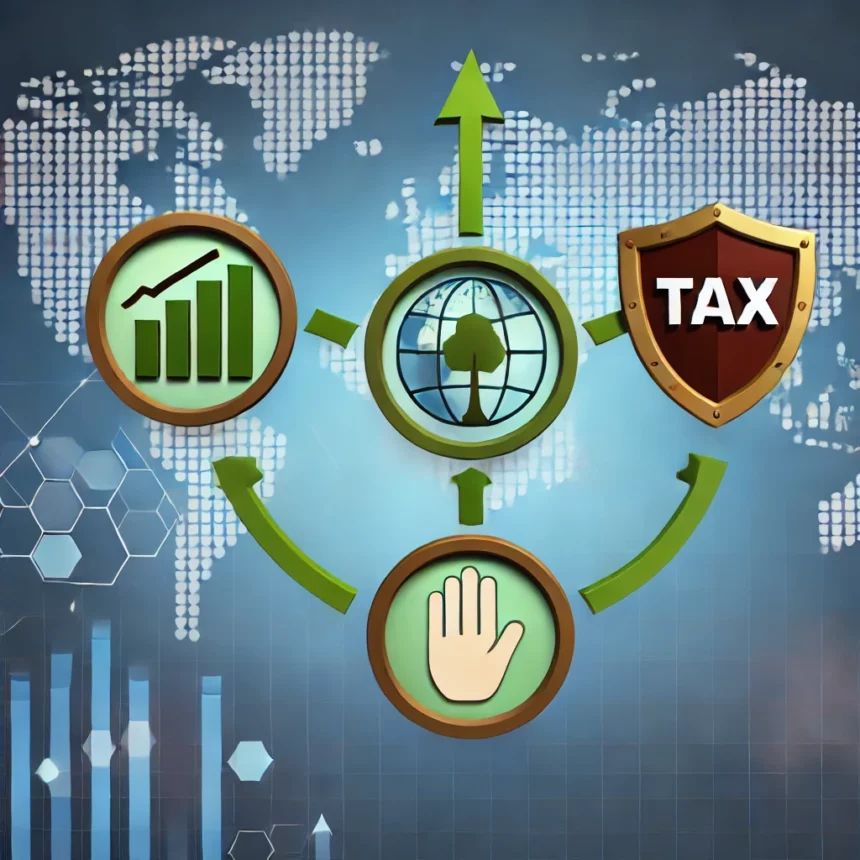Summary by Geopolist | Istanbul Center for Geopolitics:
The essay looks at the current fiscal policy trilemma that governments face, which is defined by rising public debt, hostility to tax increases, and increased need for spending in vital sectors such as defence, climate change, and social services. The current situation resembles the economic challenges of the 1980s, but it is exacerbated by developing global issues such as aging populations, inequality, and climate change.
The current demands on the public finances are significant. Governments are receiving calls to increase their spending in a variety of areas, including defence, climate change, and poverty reduction. However, the public is strongly opposed to any proposals to raise taxes. The increase in public debt has been enormous, with increasing deficits threatening the financial stability of many governments. This creates the fiscal trilemma: governments must decide which challenges to prioritize, as tackling all three at once is nearly impossible.
The paper investigates the origins of fiscal policy issues, drawing comparisons between the current situation and that of the early 1980s, which was defined by severe inflation fears. During that time, nations struggled to control inflation while maintaining economic growth, pushing central banks like the United States Federal Reserve to implement assertive monetary policies to address the issue. The establishment of central bank independence and inflation targeting constituted a fundamental shift in economic policies at the time; nevertheless, the economic environment has changed significantly since then.
The 2008 global financial crisis called into question monetary policy’s effectiveness, as many economies saw weak growth and low inflation, despite exceptional interventions such as quantitative easing. The start of the COVID-19 epidemic highlighted the limitations of relying primarily on monetary policy. The epidemic underlined the importance of synchronized fiscal and monetary policy in stabilizing economies, reinforcing Keynesian economics.
The trilemma is a major issue: managing rising spending needs while avoiding exacerbating deficits and the risk of financial instability. The IMF and other agencies emphasize the importance of strong public finance, including efficient and equitable tax systems, in efficiently managing this complex landscape. Many developing countries have major challenges in increasing domestic tax capacity to satisfy their development goals.
Governments must develop a comprehensive approach to address the fiscal trilemma. Initially, defined spending priorities must be established to ensure that public monies are used properly and directed toward activities that produce actual benefits. Second, tax reforms are necessary in order to develop a comprehensive and equitable tax structure capable of funding critical government expenditures. Third, it is critical to acknowledge the relevance of political considerations—governments must develop popular support for fiscal discipline, which may entail convincing individuals to agree to raise taxes when necessary.
The article underlines the significance of international cooperation, notably in taxes and climate change issues. The IMF has recommended an internationally coordinated carbon price floor to reduce global warming while also ensuring an equal allocation of the expenses associated with climate policy.
Over time, how governments address the fiscal trilemma will vary; but, a methodical and consistent budgetary adjustment plan is required. Instead of imposing draconian austerity measures, countries might pursue gradual changes that strike a balance between debt reduction, economic growth, and social equality. By following this strategy, governments may effectively navigate the complex policy environment, avoiding a debt crisis like the one that occurred in the 1980s.
The fiscal trilemma provides a significant problem to policymakers; nonetheless, it is solvable. Governments can effectively manage public finances by adhering to good fiscal principles, adopting sensible reforms, and understanding political realities in order to balance competing demands and ensure long-term stability.
Read the full article here.







